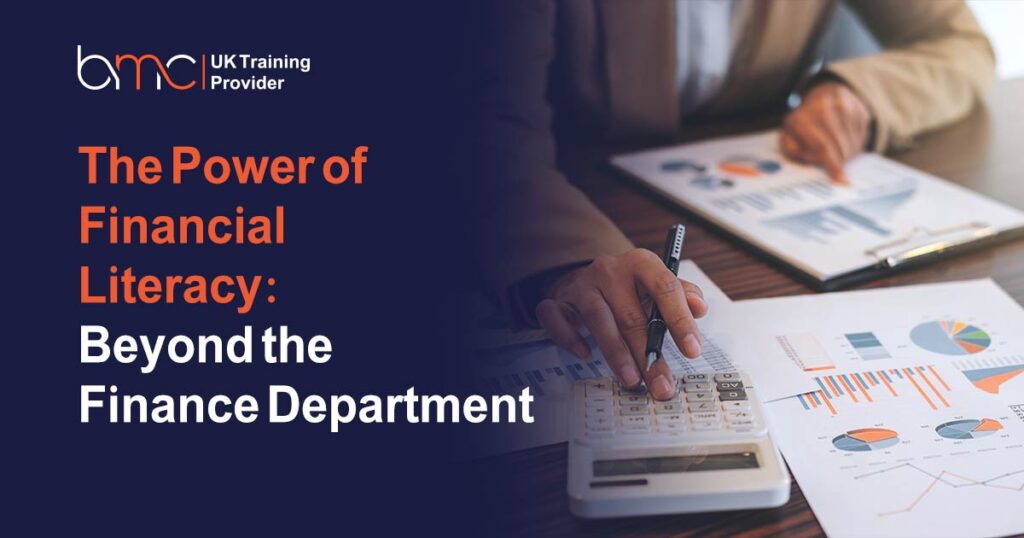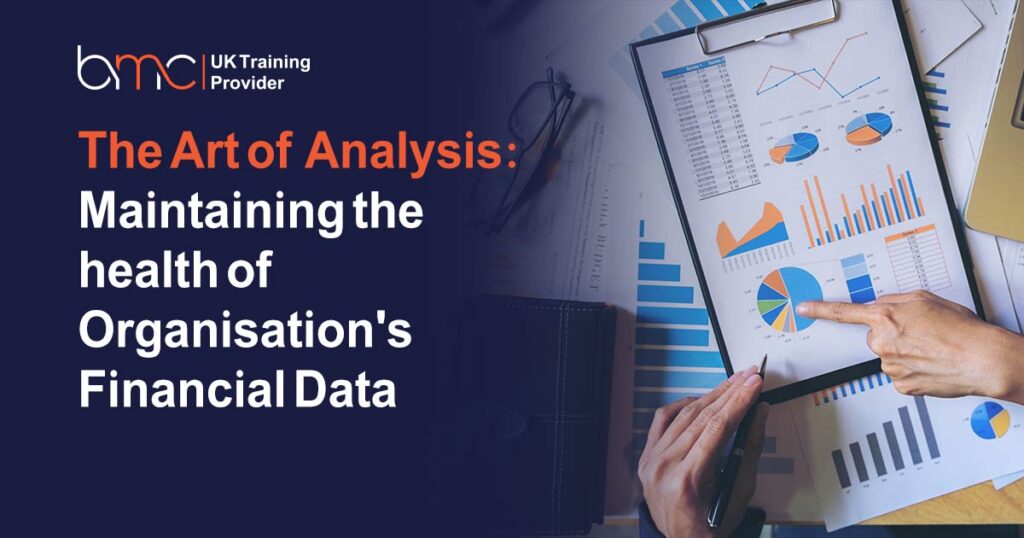In today’s fast-paced business environment, understanding the fundamentals of finance is no longer a luxury reserved for accountants and financial analysts. For professionals in various fields, having a solid grasp of financial principles is crucial for making informed decisions and contributing effectively to their organizations. This is where the concept of “Finance for Non Finance Professionals” becomes essential. This training aims to demystify financial jargon and equip professionals with the knowledge they need to interpret financial statements, manage budgets, and assess the financial health of their projects. By bridging the gap between finance and other disciplines, “Finance for Non Finance Professionals” empowers non-finance professionals to enhance their strategic thinking and improve their overall business acumen.
The Power of Financial Literacy: Beyond the Finance Department
Financial literacy exceeds the boundaries of the finance department. Finance for non finance professionals equips individuals with the knowledge and skills to navigate the complexities of the financial landscape. This understanding allows and qualifies them to:
- Make informed decisions: From resource allocation to budgeting and investment strategies, comprehending financial principles allows non finance professionals to make data-driven decisions that contribute to organisational success.
- Enhance communication and collaboration: Understanding financial statements and key metrics allows for stronger communication and collaboration across departments.
Non finance managers can effectively communicate their needs and objectives while appreciating the financial implications of their actions.
- Increase personal financial well-being: Financial literacy is vital for personal financial management. Individuals equipped with this knowledge can navigate personal finances better, make informed investment decisions, and achieve their financial goals.
A Comprehensive Curriculum: Finance Courses Designed for Your Needs
BMC Training recognises the growing demand for finance for non financial managers and finance for non finance professionals’ education.
Our specialised courses address the specific needs of non finance professionals, delivering a comprehensive understanding of essential financial concepts.
BMC Training’s finance courses for non finance professionals offer a comprehensive curriculum including a wide range of topics, including:
- Financial Analysis: Learn how to interpret financial statements, analyse financial ratios, and assess the financial health of an organisation.
- Budgeting and Forecasting: Gain the skills to create and manage effective budgets, track financial performance, and make informed projections for the future.
- Investment Fundamentals: Understand the principles of risk and return, asset allocation, and portfolio management to make informed investment decisions.
- Cost Management: Master strategies to control costs, optimise resource allocation, and improve profitability.
- Financial Modeling: Learn how to utilise financial models for decision-making, forecasting, and financial planning.
These topics within our training courses are designed to be highly interactive and engaging, utilising practical examples, case studies, and real-world scenarios to solidify understanding.
The Art of Analysis: Maintaining the health of Organisation’s Financial Data
Financial analysis plays a crucial role in organisational decision-making. By learning how to interpret financial statements and analyse financial data, thus, non finance professionals gain valuable insights into:
- The financial performance of the organisation: This includes profitability, liquidity, solvency, and efficiency, all crucial for understanding the overall financial health of the organisation.
- Identifying trends and patterns: Analysing financial data over time reveals trends and patterns that can inform future strategies and decision-making.
- Evaluating investment opportunities: Financial analysis is essential for assessing the financial viability of potential investments, allowing non finance professionals to make informed recommendations and contribute to strategic decision-making.
This enhanced understanding strengthens informed decision-making across departments, improving resource allocation, strategic planning, and ultimately, organisational success.
The Art of Budgeting: Navigating Financial Resources Effectively
Budgeting is the cornerstone of effective financial management. Finance for non finance professionals allows individuals to:
- Develop realistic and achievable budgets: By understanding the budgeting process and its underlying principles, individuals can create budgets that accurately reflect financial needs and plans.
- Monitor financial performance: Analysing variances between actual and budgeted figures enables continuous monitoring of financial performance and allows for timely adjustments to ensure adherence to financial objectives.
- Make informed budgetary decisions: Understanding the financial implications of various decisions empowers non finance professionals to evaluate options and make informed budgetary choices that contribute to organisational goals.
Effective budgeting enhances financial discipline, promotes resource optimisation, and ultimately, contributes to achieving organisational objectives.
The Secrets of Investment: Making Informed Financial Choices
Understanding investment principles is crucial for individuals of all backgrounds, not just financial professionals. Finance for non finance professionals equips individuals with the knowledge to:
- Assess risk tolerance: Identifying their risk tolerance allows individuals to make informed investment decisions that align with their personal financial goals and risk appetite.
- Allocate assets strategically: By understanding asset allocation strategies, individuals can diversify their portfolios and minimise risk while maximising potential returns.
- Manage their portfolios effectively: Learning about portfolio management strategies empowers individuals to make informed choices about their investments, track performance, and make adjustments as needed to optimise their financial well-being.
This newfound knowledge allows individuals to navigate the investment landscape with confidence, make informed financial decisions, and ultimately, achieve their financial goals.
Putting Theory into Practice: Real-World Applications
BMC Training’s finance courses for non finance professionals emphasise practical application by incorporating real-world examples and case studies. This allows participants to:
- Apply financial concepts to real-world scenarios: Participants learn to apply the acquired knowledge to diverse business situations, enhancing their ability to solve practical problems and make informed decisions.
- Develop critical thinking and problem-solving skills: Participants improve their critical thinking and problem-solving skills by engaging with real-world case studies, equipping them to approach financial challenges with greater confidence and clarity.
- Enhance communication and collaboration: Working together on case studies boost collaboration and communication, crucial skills for effective interaction with finance teams and other departments.
By bridging the gap between theory and practice, BMC Training’s courses ensure that participants gain the practical skills and confidence to apply their financial knowledge in their respective professional contexts.
Investing in Yourself: The Benefits of Finance Training
Enrolling in finance courses for non finance professionals offered by BMC Training provides a multitude of benefits for individuals and organisations alike. Here are some key advantages:
- Career advancement opportunities: Demonstrating financial literacy positions individuals as strong candidates for promotions and leadership roles.
- Increased confidence in financial decision-making: Understanding financial concepts empowers individuals to make informed and confident decisions that contribute to organisational success.
- Enhanced communication and collaboration: A shared understanding of financial language creates stronger communication and collaboration across departments, leading to improved cross-functional effectiveness.
- Improved problem-solving skills: Learning how to analyse financial data and interpret financial statements equips individuals with valuable problem-solving skills applicable to various business scenarios.
- Greater personal financial well-being: The knowledge gained from finance for non finance professionals courses can be applied to personal financial management, enabling individuals to make informed investment decisions and achieve their financial goals.
Investing in finance training is an investment in your professional development and financial well-being. It empowers you to become a more valuable asset to your organisation and equips you with the skills necessary to navigate the complexities of the financial landscape with confidence.
Conclusion: Take Control of Your Financial Future with our Finance for Non Finance Professionals Training
Understanding finance is no longer a privilege reserved for financial professionals. Finance for non finance professionals is essential for navigating the complexities of the modern business environment and making informed decisions that contribute to both individual and organisational success.
BMC Training offers a comprehensive selection of finance courses for non finance professionals designed to equip you with the knowledge and skills you need to shine in today’s professional world. By investing in your financial education, you are investing in your future!
So, are you ready for the kickstart?





